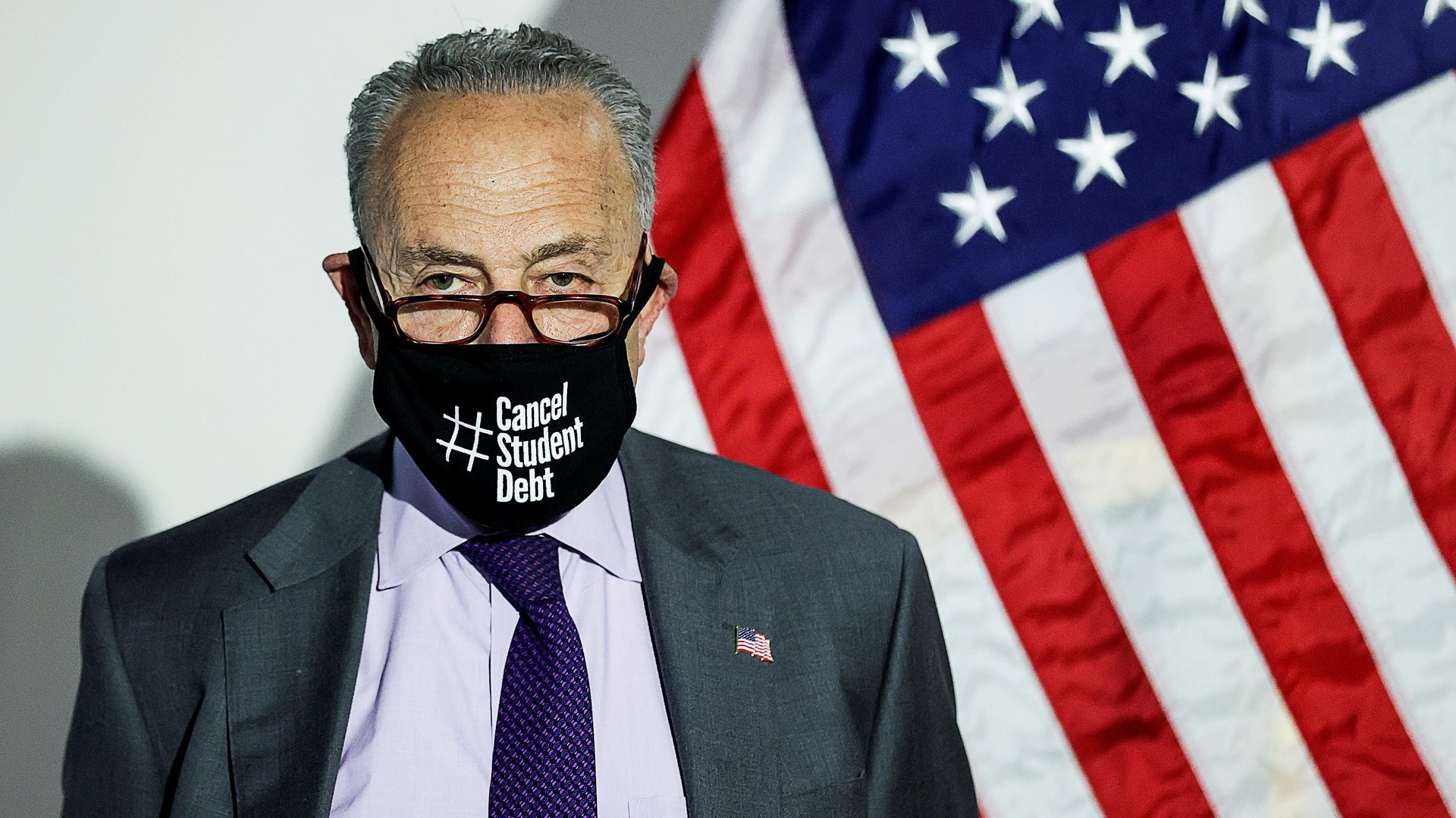Canceling student debt would be recession insurance for Joe Biden
The Biden administration faces a conundrum as rising prices and Russia’s Ukraine invasion threaten the US recovery: How to boost the economy without further fanning inflation.


The Biden administration faces a conundrum as rising prices and Russia’s Ukraine invasion threaten the US recovery: How to boost the economy without further fanning inflation.
The president might find a solution in one of his own campaign promises. Joe Biden’s pledge to forgive some student debt may be one of the best ways to avoid a recession in the next couple of years without fueling prices today.
In an economy that’s been made more fragile by supply chain snags and war disruptions, the added burden of student debt has the potential to trip borrowers into default and trigger a recession. Though the federal government extended its pause on student loan repayments earlier this month, starting in August, 43 million Americans will again need to chip away at the $1.6 trillion they still owe.
Forgiving that debt entirely would nearly amount to a second American Rescue Plan. Putting repayments on hold, which the federal government did at the beginning of the pandemic, already saved consumers nearly $200 billion, according to a study published in March by the Federal Reserve Bank of New York. And in the long run, doing away with the debt altogether would allow Americans to start new businesses, move to different parts of the country, buy cars and houses, and have families, said JW Mason, an economist at John Jay College.
While Biden has suggested Congress cancel the debt, legal scholars think he could do it himself via executive order. “The benefits of student debt forgiveness are going to be spread out over many years,” Mason said.
More immediately, though, it’s unlikely to result in more spending—and higher prices. Since people haven’t been making payments over the past year, their day-to-day finances are unlikely to change.
Who should get student loan forgiveness?
Some economists say canceling federal student loans would create a “moral hazard”—that people might borrow recklessly expecting the government to forgive their debt. But without a degree, it’s hard for many young people to compete in the job market, said Mason. “You’re worried that people are going to consume too much education?” Mason said. “It’s not something we should be worrying about.”
Since most student loan borrowers owe a modest amount—the average debt from a bachelor’s degree is about $29,000—forgiving even the $10,000 that Biden has been considering would have a significant effect. But Mason says the government should clear all student debt, even for people who owe a lot. “It’s economically destructive to have people carrying around large amounts of student debt,” he said.
Requiring borrowers to demonstrate eligibility would also be less efficient than a blanket policy, Mason added.
“People have different debt that’s incurred for different institutions, different degrees from different lenders,” he said. “Something that might sound very simple like ‘let’s forgive $20,000 of your debt’…is not going to be so straightforward when you go out and try to implement that policy.”